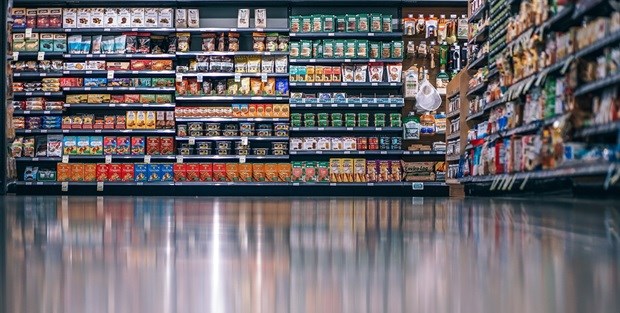Packaging design in South Africa in 2019 will be shaped (at an alarming rate) by changes in technology and the way products are viewed and selected, the diverse and often opposing needs of a spectrum of consumers ranging from the traditional to 'digital natives', and the ability to tap into the 'new' consumer's insatiable craving for instant gratification.

Gail Macleod, Stratcom Branding.
Brands who refuse to catch up with what consumers want, could be left behind faster than you can say #Twitterstorm.
Technology
The most fundamental trend shaping the industry is technology, as this will change the face of branding and design. E-commerce, exciting tech innovations, labelling and prolonging shelf life, as well as protecting the environment, are transforming the future of packaging.
Remember, the consumer of today is not the consumer who will bring you growth in the future, the future is going to come from what I call ‘digital nomads’.
Brands and businesses need to stay attuned to the ever-changing pulse of their consumers. Thanks to globalisation, brands are now in a position where they are known in countries they do not sell in. Big brands cannot be arrogant, ignorant and out of touch with its regional local South African customers.
Design thought has not changed significantly over the years in that it still aims to offer consumers or end users of products, the ideal gratification from their purchase. What has evolved is the technical ability of designers that are pushing the boundaries of design, intertwined with the digital explosion.
The new consumer
iCitizens, Millennials, digital natives... call them what you will. It has less to do with age and more to do with their increased buying power, tech savviness, global connectedness and environmental concern. They are ‘woke’, they care and they are 70 to 80% less loyal to brands than previous generations. This makes targeting them less about on-shelf presence and more about regional, digital and social presence.
‘Woke’ consumers pose an opportunity for brands to showcase their authenticity through working with brand-developing agencies that are born of the region, have global understanding and the ability to translate this with a solid understanding on the ground.
Brands have an important role in shaping our society and they can unite the global community by communicating universal truths that effect positive change. A successful brand that is global and strives to be regionally relevant to boost sales through a deep understanding of the groundswell of local consumers, needs to fully understand the socio-economic drivers of their consumers.
Sustainability is another matter close to their hearts. Consumers care more than ever and it has been estimated that by 2050 there will be more plastic in the sea than fish. With lobby groups pointing the finger at packaging, brands are right in the firing line. Concerns over safe packaging disposal will increasingly colour consumers’ perceptions of different packaging types and impact shopper purchase decisions. Only by communicating (and showing) that a brand is working towards a solution, will this growing barrier to purchasing be overcome.
Personalisation and instant gratification
Today’s consumers are spoilt for choice and have more power over where and when they want to exercise these choices. Retail brands that do not invest in creating individual experiences, risk being pushed down the consideration ladder or even totally ignored. Consumers are now expecting personalised experiences even when they are shopping at value or at discount-pricing retailers.
Successful branding strategies need to be able to provide personalised experiences at every consumer touch point, especially where they shop most - online. The retail industry has embraced big data analytics capabilities to create such experiences, but the link between data analytics and branding continues to be weak. There are significant opportunities to revamp loyalty card programmes, which have immense potential to strengthen brand equity
Participating in the creation of a product that’s just for them is a digital nomad’s ‘ON-button’. They enjoy participation and being able to play an active role in designing the products they choose to consume. The challenge is of course volume vs. value for the bigger brands, as they are changing their approach continuously, while still trying to hold on to their profits.
The world of limited editions is going to drastically change the landscape of packaging. From the ideation, concept and creation stage, through to moving from traditional print processes to digital print, in the drive to be more responsive in record time, more relevant to smaller groups of purchasers, and be able to engage through AR and multi-channel to each user – brands will have to cater to the ever-changing needs of these digital nomads.
Conclusion
South Africa can learn from our global partners and especially more mature markets like China. These trends are moving our way and the sooner we pay attention, the quicker we will adjust to the changes. Global packaging disruptors exist in South Africa and are on the trajectory for change. We need to learn from our global partners and be ready for the revolution that is on its way.














































